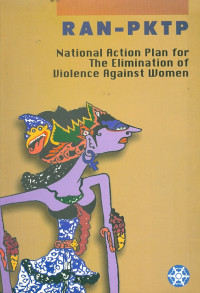
Text
Ran-pktp national action plan for the elimination of violence against women
.This study analyses gender equality policy change initiated by various women’s movements in the context of Indonesia’s democratization. It focuses on advocacy processes for the approval of laws and policies to address violence against women, the protection of domestic workers and unpaid care work. It explores how the state at various governance levels—national, provincial and district—responds to these policy demands. The report also examines the conflicting interests of religion and customs, and how these factors influence the state’s response to pressure for policy reform. In 1998, Indonesia underwent a change from the repressive, undemocratic New Order regime of President Suharto (1966–1998) to the New Democratic Era. At the same time, provinces and districts gained greater autonomy because of decentralization, which triggered a process of democratization at the subnational level. This new scenario provided an opportunity for civil society, including women’s organizations, to participate and influence policy making at both national and subnational levels. Movements with women’s rights agendas emerged and strengthened their presence and voice during this period. The agendas included violence against women; gender relations within marriage; women’s autonomy over their bodies and sexuality; access to economic rights, including the right to work; reproductive health; political participation; and gender mainstreaming. These claims were supported by a variety of actors, who often collaborated and networked with each other, including women’s non-governmental organization (NGOs), human rights organizations, grassroots organizations and so on. A number of these demands have been broadly supported and successfully adopted by the state, representing significant wins for the Indonesian women’s movement while other claims made by women—such as increasing protection for domestic workers—faced opposition. To explore the processes of mobilization and policy change, the authors adopted a qualitative feminist methodology, using the following methods: interviews, observation, participant observation, focus group discussions, and review of academic and grey literature. The research fieldwork involved women activists with different backgrounds (NGOs, academics and members of religious organizations), members of government and parliament at national and subnational levels, and religious and customary leaders. The research focused on Jakarta, three provinces (West Sumatra, East Java, West Nusa Tenggara) and three districts (West Pasaman, Jember, East Lombok) that had existing advocacy initiatives, different kinship systems—matrilineal, patrilineal and parental— and traditions. The authors argue that social and political context an important factor influencing women’s mobilization and policy change.
Availability
| KP.IV.00015 | KP.IV NUR r | My Library | Available |
Detail Information
- Series Title
-
-
- Call Number
-
KP.IV NUR r
- Publisher
- Jakarta : Kemitraan Negara dan Masyarakat., 0
- Collation
-
xviii, 187 hlm. : ilus. ; 25 cm.
- Language
-
English
- ISBN/ISSN
-
979-9496-05-5
- Classification
-
KP.II
- Content Type
-
-
- Media Type
-
-
- Carrier Type
-
-
- Edition
-
-
- Subject(s)
- Specific Detail Info
-
-
- Statement of Responsibility
-
-
Other version/related
No other version available
File Attachment
Comments
You must be logged in to post a comment
 Computer Science, Information & General Works
Computer Science, Information & General Works  Philosophy & Psychology
Philosophy & Psychology  Religion
Religion  Social Sciences
Social Sciences  Language
Language  Pure Science
Pure Science  Applied Sciences
Applied Sciences  Art & Recreation
Art & Recreation  Literature
Literature  History & Geography
History & Geography